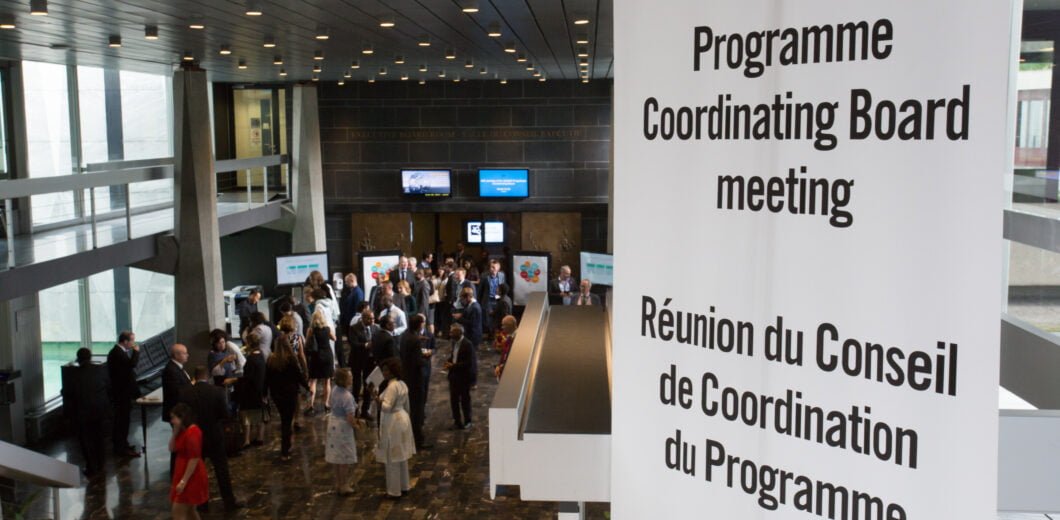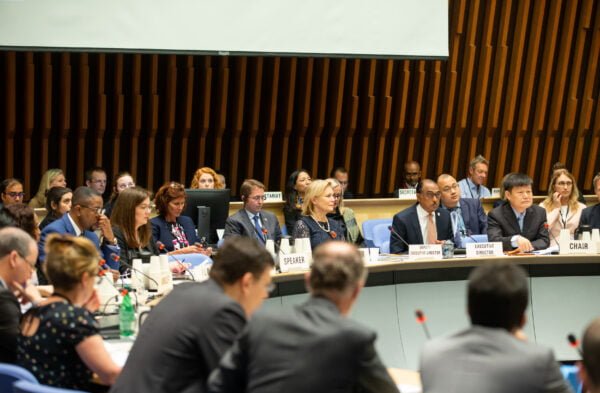Our delegation would like to stress the importance of this moment for the future of UNAIDS, when we have the entire world watching us. The responsibility of the new ED will be immense and we are particularly happy to see that the call for the new ED position specifically welcomes applications from women.
We strongly believe that after having two men responsible for leading UNAIDS, it is the right moment in history to have a woman taking this position: let’s remember that, globally, the HIV response relies heavily on women’s shoulders – as people living with and affected by HIV.
Let’s remember that investing and promoting women’s leadership is currently in the forefront of implementing the Agenda 2030 agenda and at a time when the world is increasingly discussing gender equality as an essential goal for sustainable development, a radical change in women’s roles within UN agencies is deeply needed.
Let’s remember that we face a war against multilateralism, evidence-based approaches, and human rights, including in many countries that until recently used to be supportive to women’s empowerment and women’s rights.
Let’s remember as it was said by many Board Members today, that UNAIDS change of leadership poses a challenge to the organization, but it is also a unique opportunity for UNAIDS to once again lead by example.
UN Secretary General Antonio Guterres has called for gender parity throughout the UN system. This is excellent, but must happen in practice, at all levels. Our Delegation is concerned to learn that the achievements of the UNAIDS Secretariat around parity in staffing have since rolled back. When looking into the Gender Action Plan, it would be problematic if UNAIDS moves backward in the area of gender parity.
Therefore, we have the opportunity and obligation as a Board to fix this, not least by ensuring that we recruit strong and diverse candidates to the position of Executive Director that, also, will be a strong voice committed to intervene, with courage, in points of conflict where people living with HIV and other key populations will suffer, such as the cases of Venezuela and Cameroon.
The message we have from our Civil Society constituencies is clear: We must ensure, as a global community, we put forward women, particularly women from the Global South.
In doing so, we will send a compelling message to both the Secretary General and the world: a message that we uphold the empowerment of women at the highest level.
A message that champions regional diversity and speaks to the shifts in the global HIV epidemic. This is a message that is informed by the abundant evidence, which shows that organizations and companies with more women and more diversity are more effective and achieve greater results.
More importantly at this juncture, a safer and more respectful workplace for all UNAIDS staff will result in a better AIDS response. In the end, it will contribute to the achievement of a Stronger UNAIDS.
Thank you.

